I’m not a Farmer, but… Policy and Community Change leader Talks About Food, Family, and the Impact of Working for Others
Author
Published
2/20/2025
With the Utah Legislative Session taking place, Utah Farm & Fork got the chance to visit with Emily Bell McCormick, the founder and president of The Policy Project, which is a nonprofit organization that looks to craft policy solutions to solve problems impacting our communities. Through her leadership of the “The Period Project,” her team successfully negotiated a public-private partnership that mandated period products be provided in every girl and all-gender bathroom in Utah’s public and charter schools, grade K-12—effecting an immediate change for more than 330,000 girls.
Before her venture into the world of policy, Emily was an editor and occasional host of Utah's NBC morning show, KSL Studio 5, and worked as a communication strategy consultant in a myriad of industries including policy, NGOs, REITs, tech, and fashion. When she's not campaigning for a new idea, she is spending time with her five wild kids or attempting to sneak in some brownies and a walk in a beautiful neighborhood.
Some of Emily’s answers have been lightly edited for length and clarity.
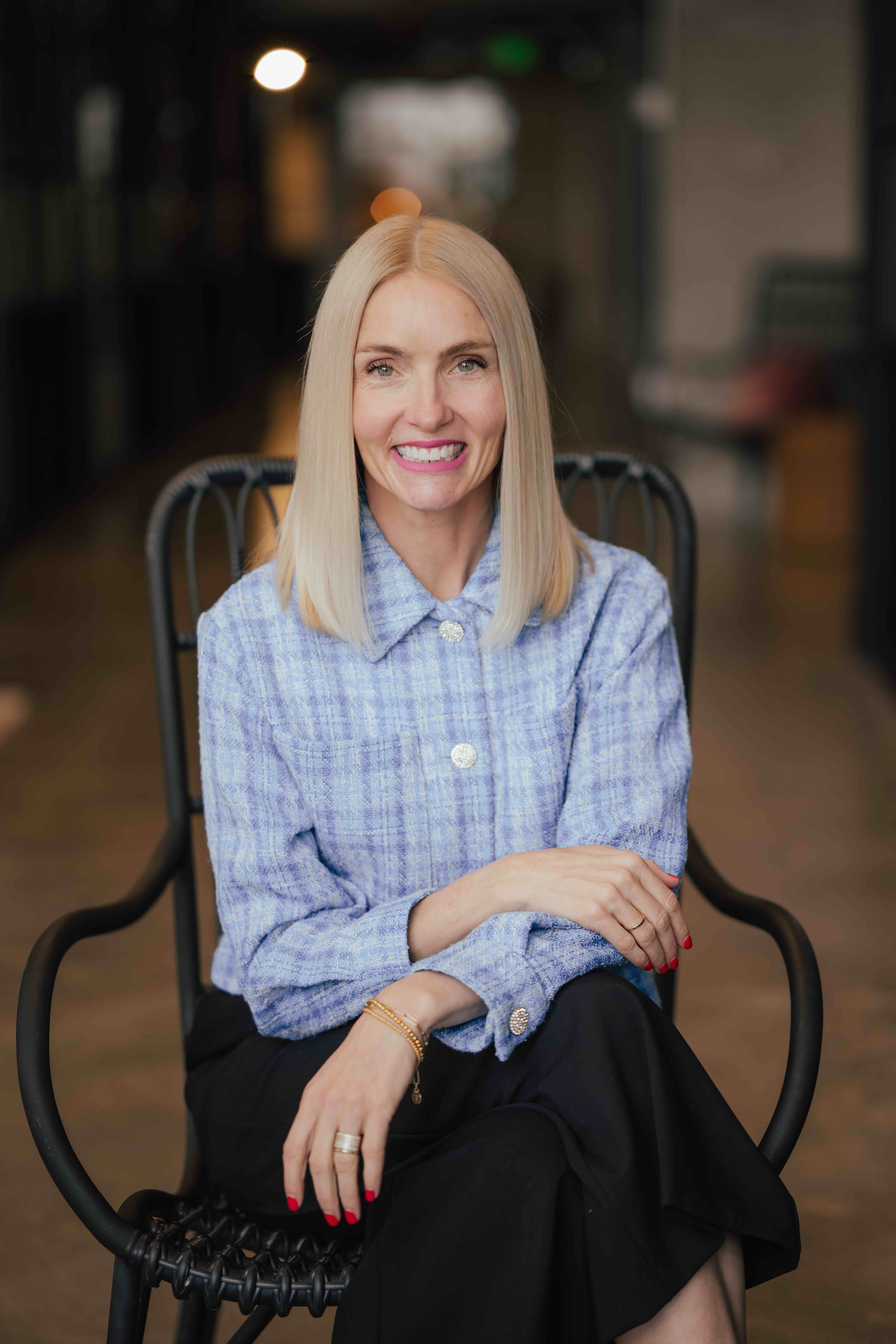
Some may think it’s a stretch to show how people are connected, simply because of food. What do you think? How does family impact your connection to food?
I think it is so wise to show that connection. The more urban lives we live, the more disconnected we are from food sources. It's just crazy, and even I can see it. I'm not a huge foodie or anything, but I grew up seeing how essential it is.
The entire side of my dad's family were ranchers in Wyoming, but I grew up in a suburb of Salt Lake – in Holladay – and had three siblings. We grew up in a pretty tight-knit community, with the majority religion of Utah. My mom was highly artistic but became ill when I was young, and she was in bed most of my growing up. She ended up passing away when I went to college. It was a traditional family, but with this unique piece included. I didn’t have a mom who was super involved, so my dad worked hard and did the best he could.
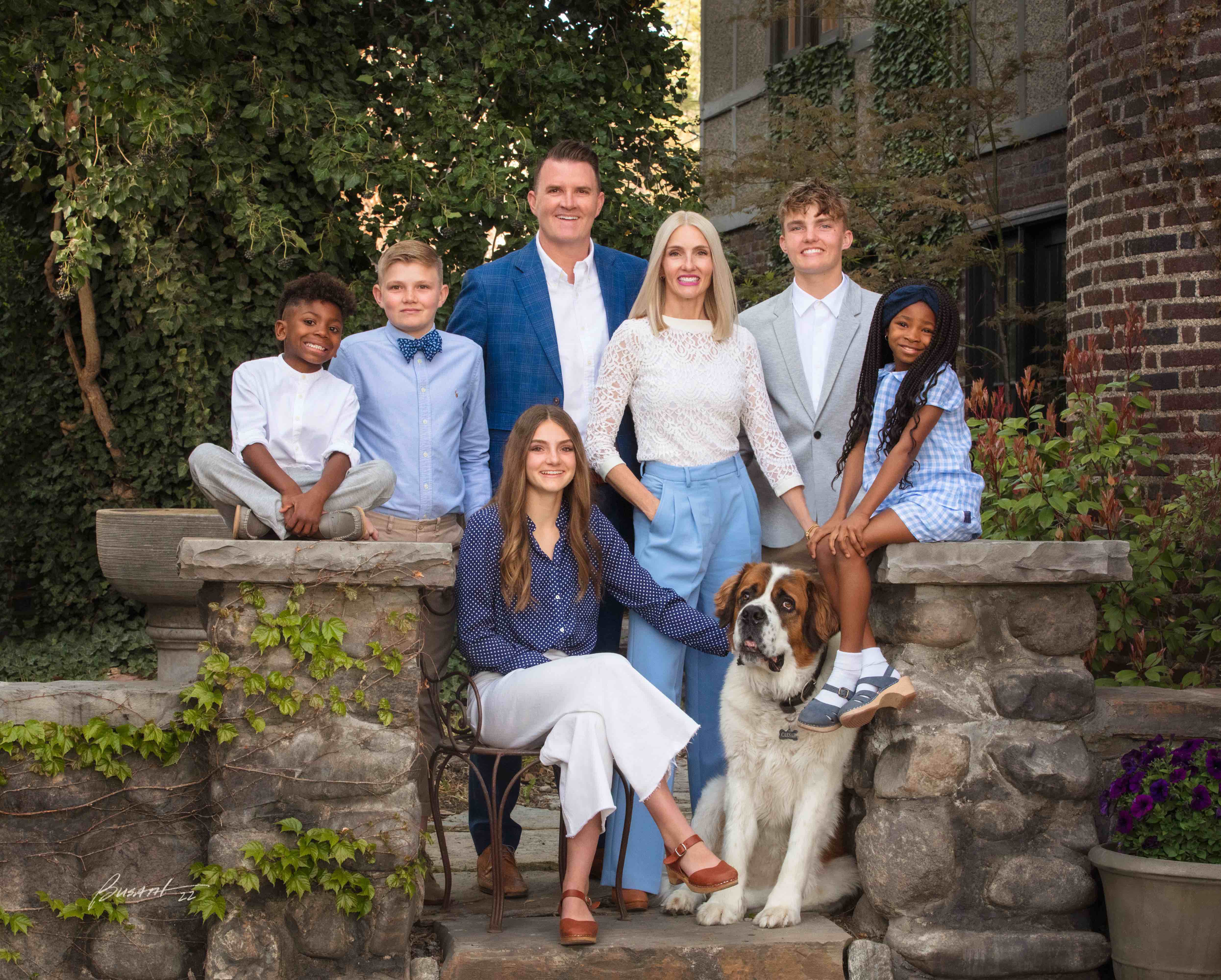
After graduating from BYU, I worked in marketing for an ad agency and then I went to grad school at The Ohio State University and did communication again there while my husband was going to dental school. After that, I got more into the public relations side of things. I also started a clothing company called Shabby Apple, which was based around this need in the marketplace to have dresses that were work appropriate, but that were affordable and cute. I later sold my part in the company to my partner and focused on my family.
How did you get involved in the work you’re doing now?
Through all of my growing up, I was extremely interested in life experiences that were not mine. I have an unquenchable curiosity about lives that are not mine, especially everywhere in the world, for sure, but definitely in America. I’ve thought, ‘How is this possible that I'm living this close to this person, and we're having such different life experiences?’ A lot of this came from reading, listening to the news, etc.
I think what became very clear to me as I got to my mid-30s when I started getting pretty consumed with this question of life experiences. I saw many nonprofits doing the best they could at certain issues, but some of the fixes were band-aids. This isn't to insult them. We need band-aids. I wear band-aids. You wear band-aids. We all do, and that's great, because somebody needs a coat this winter, and somebody needs a meal right now, and someone needs shelter right now, but I was really concerned with going upstream of that and trying to make a change on the front end.
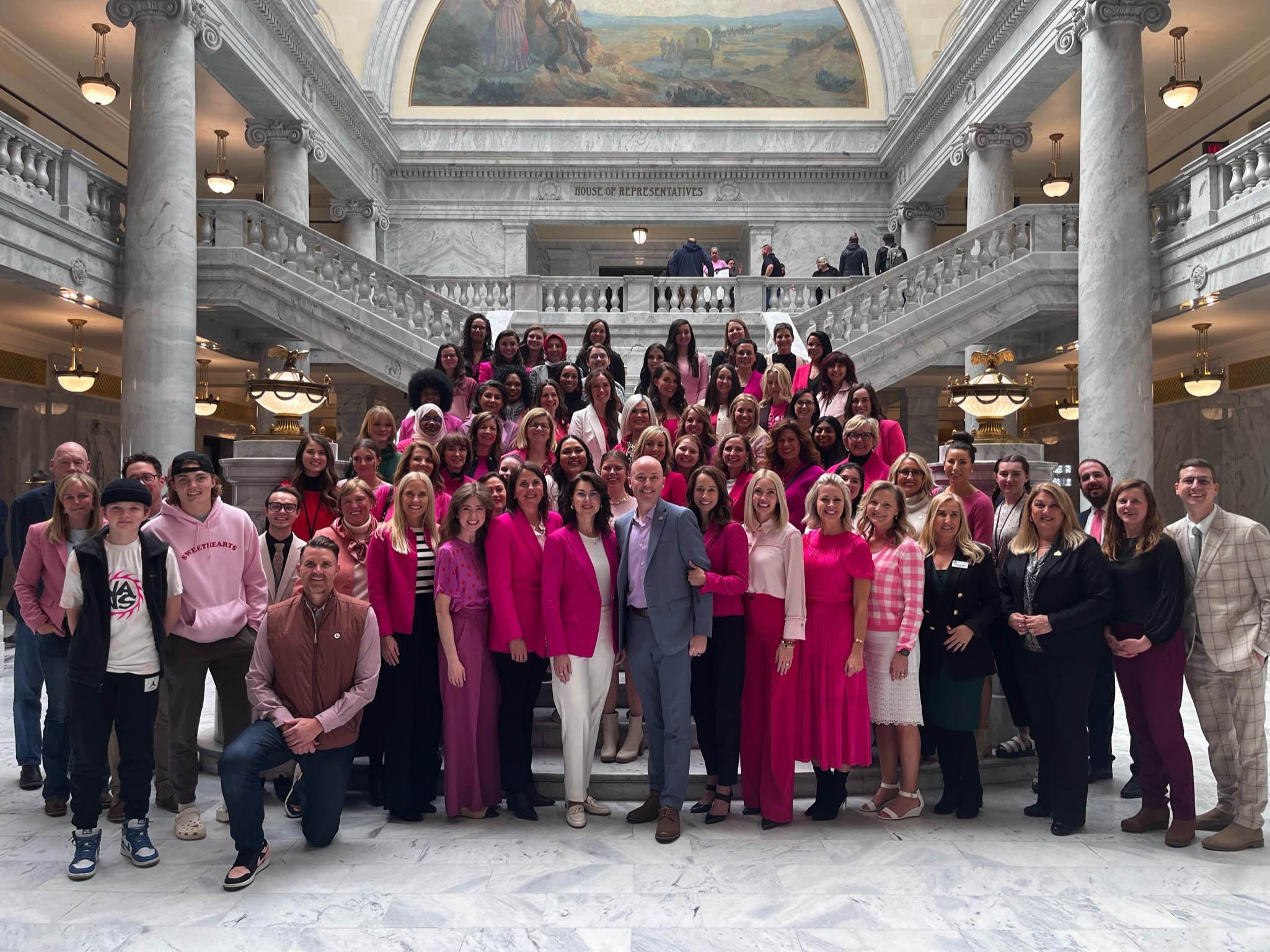 McCormick (second from right of Governor Cox on front row) and the group rallying for the Period Project at the State Capitol.
McCormick (second from right of Governor Cox on front row) and the group rallying for the Period Project at the State Capitol.The other uncomfortable thing was this idea of scale. As an individual, the most I could reach in a year, in a significant way, would be maybe 10 people. How do you get good for a ton of people? And how can we do it in a way that lasts beyond a lifetime? I basically stumbled into this idea that it had to be policy.
I grew up in a really apolitical family, which is to say we never talked about [political] stuff. When I studied communications and broadcast journalism at BYU, I was making a practical choice. I used to regret not having done political science, but I actually think some of the successes we have had with The Policy Project are directly tied to our ability to message. Things like keeping our messaging tight and on point; knowing our audience, etc. Nobody applies those things to policy, but we need to. You don’t just all of a sudden show up on Capitol Hill with a bunch of pink, and think that is a campaign.
What was the food situation like in your family growing up? Was it different because of the challenge with your mom's health? Did your dad take all that on or was that shared with the kids?
When I was young, before my mom got sick, it was totally traditional, with my mom making the food and stuff. But she was not a meat eater. She wasn’t a vegetarian, but she just didn't eat a lot of it. And she kind of passed that down to all of us, and we would eat weird things. We were eating avocados before anyone I knew, or we would eat artichokes and dip them in this Parmesan dip she made. It was our favorite thing. She would make this olive toast where she'd chop up olives and then put them in mayonnaise and put it on toast, and that would be dinner. I felt so bad for my dad because he grew up with meat and a version of a potato for every meal, and then suddenly here are some mushrooms! He was so sweet and okay with it, but I think he was probably just hungry for the rest of his life.
I have these amazing memories of going to my paternal grandmother, who was a literal saint of the universe. I loved treats, and my mom did not let us eat a lot of sweets, but we would go to my grandmother’s house, and we would bake cakes – and everything from scratch. This is a fun core memory for me. And core memories are so often around food, right? In the summer, she had apricot trees in her backyard, and we would dry out the apricots and make fruit leather. Those are the best memories.
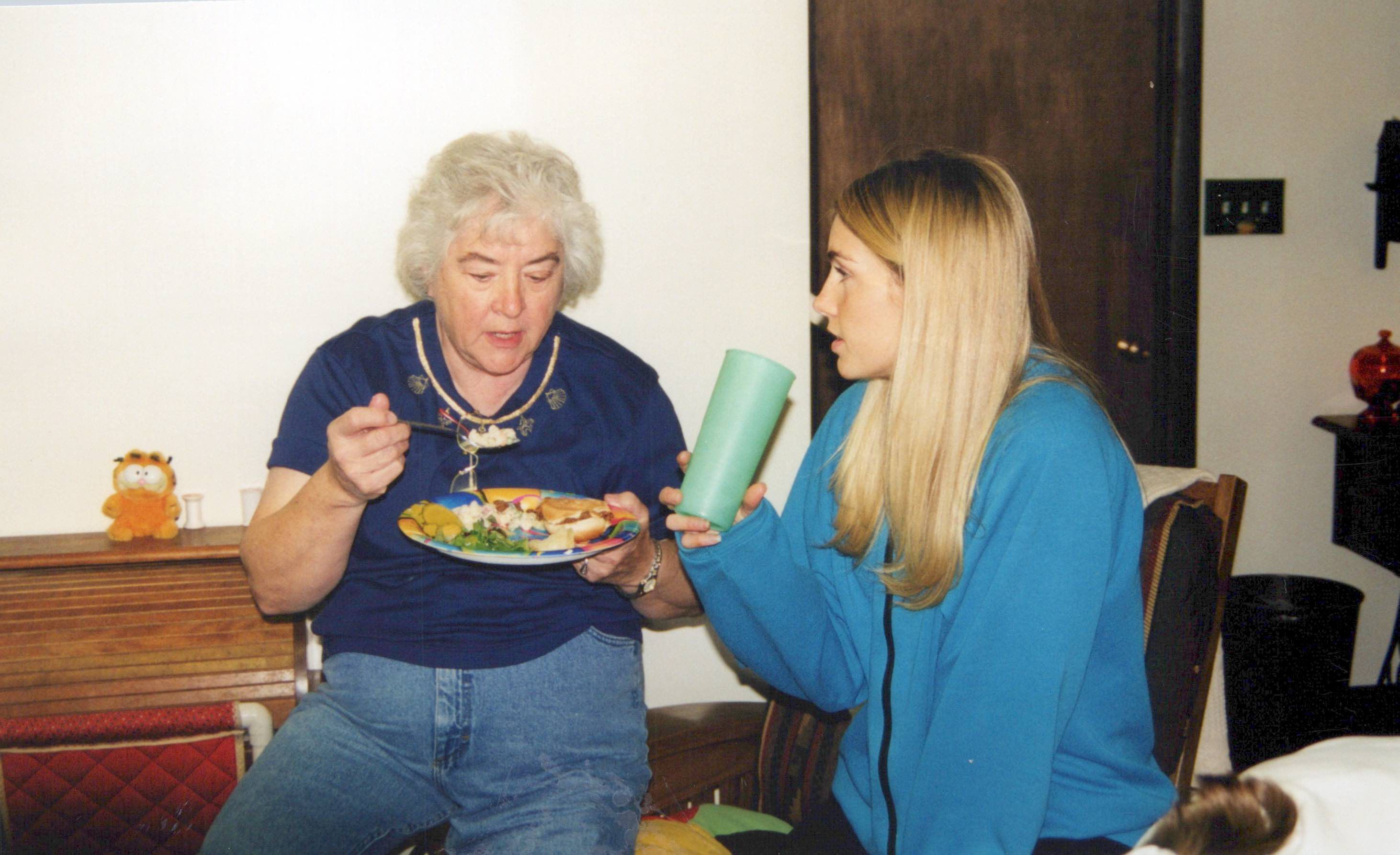
Once my mom got sick, I became the grocery shopper for our family – when I was maybe 14. But as soon as you put a young teenager in charge, we ate Skittles and Captain Crunch cereal. It was so gross. It was whatever tasted good and was fast. But something was lacking, and it was not good and unhealthy. I learned that when people suffer, food suffers, and you could see that.
Did that change for you when you went to BYU?
I think I spent freshman year eating saltines with honey on them. That is literally what I would eat. I do feel like I kind of missed out on those critical years of figuring out how to cook. I really didn't know. But luckily, I love vegetables and would try to incorporate peas with everything. When I was young and married, we would do a ton of crock pots and stuff like that.
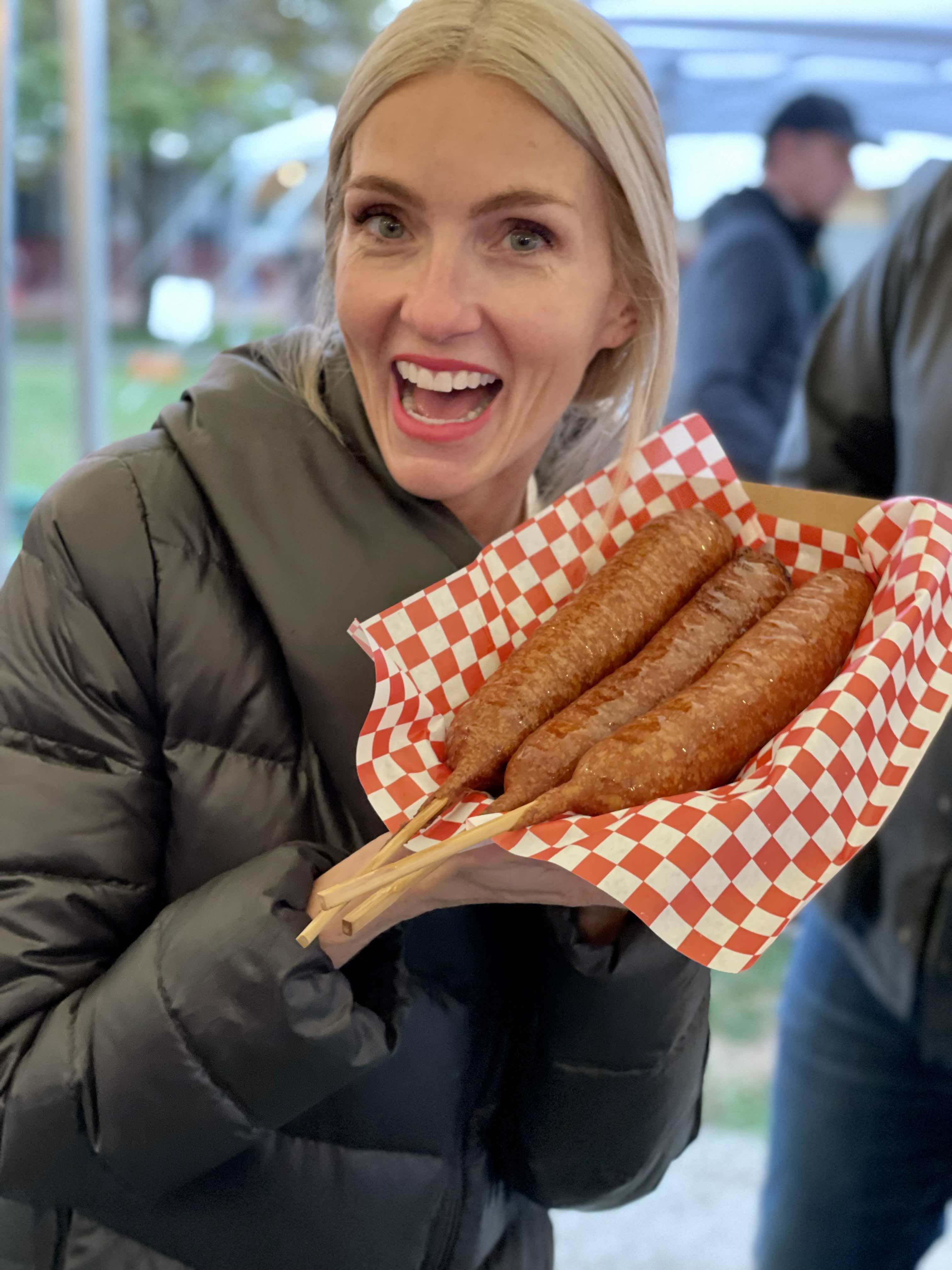
Talking again about how these core memories often revolve around food. Why do you think that that food has a pretty big role in business, or say policy?
My team makes so much fun of me because anytime I have a project to get done, I will tell them that I need to take them to lunch. 100% of the time. This has been an interesting year for me because we've been working on food-specific issues with the school meal stuff, and what I realized about humans is that we're insanely high-maintenance. We take thousands and thousands of calories to maintain our bodies in a day. It is so basic to the human existence.
Food is at the top of everything we need to exist, and it's also central to the way that we relate with one another. There is something about sharing a meal with someone – though I'm never the one to have cooked it – that it breaks down walls and it is this point of connection and relating because we're sharing that human need together. I feel that it just makes it so that we can get to the other things more easily because we're recognizing we're both humans. We can get to these other, bigger topics because this need is cared for. It's a physical way to try to get on the same playing field. It's a fascinating thing. With my team, I would say food is pretty central to our work. As weird as that is, we do lunch together at least once a week.
You mentioned earlier that you're not the cook, or that cooking is not your favorite thing. How does food prep happen in your family? What are the classics for the McCormick household?
I don’t do a lot of the meal cooking, but I bake constantly. I make brownies three or four times a week. I make the best bundt cakes in America! I think it's because I obviously love sugar, and so I'm highly motivated to spend the time on it. My kids will have a friend over at the house and they will say how lucky my kids are because of all these treats, but my kids will say they can’t even eat them anymore. But for meals, I do like to make a big pot of soup, because I love vegetables, and you can just throw all of them in there. And you can freeze it and bring it back out, and you feel like you're getting everything you need, and you can just put bread by it, and suddenly, it's a meal. So, I do like to make soup, and then my husband is into smoking meats.
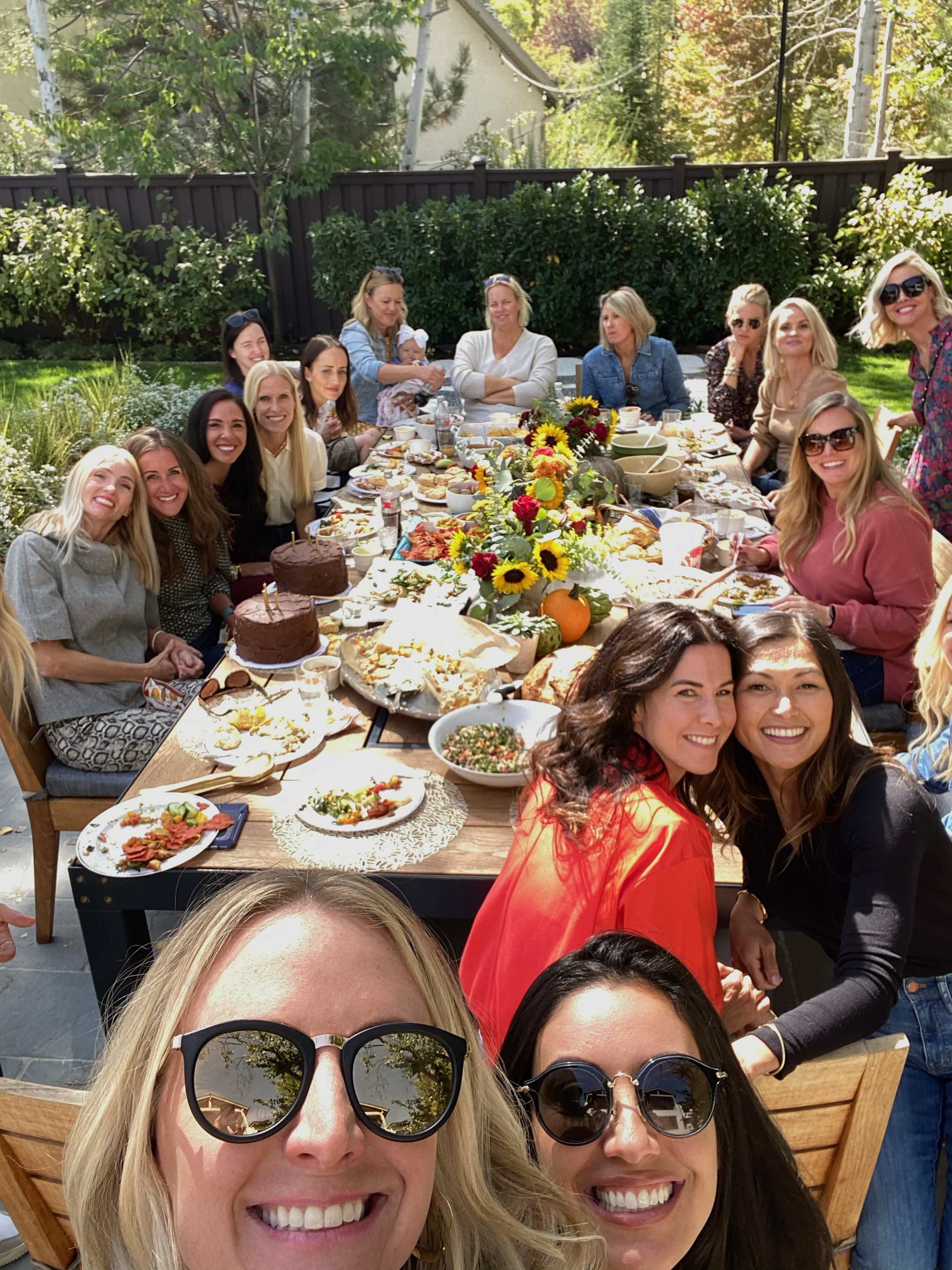
What would you say is the best meal you've ever had?
One that stands out, I would have to say, is ratatouille. The zucchini with the tomato, and it's hot and yummy!
I also have a friend who did a birthday lunch for me once, and she made shrimp tacos that were so good. Love, love, love. It was the tortillas and the shrimp, and then the cabbage and chips with, fresh salsa and guac. It was the most amazing meal.
But there we are again…tied to a memory and a person in a family. It wasn't just to whatever place you know, it was a person.
What would you have for your last meal on Earth? Is it the shrimp tacos?
Yes! I'm probably doing shrimp tacos, chips, 9 million kinds of dips and sauces, some salad, and then a massive, fudgy, delightful cake for sure!
If people don't want to make anything elaborate or fancy, what is your comfort food? Is it going to be a pan of brownies?
Oh, for sure! Cheap, box made brownies. Or, maybe nachos, but literally just chips with melted cheese and a random can of chili beans on top.
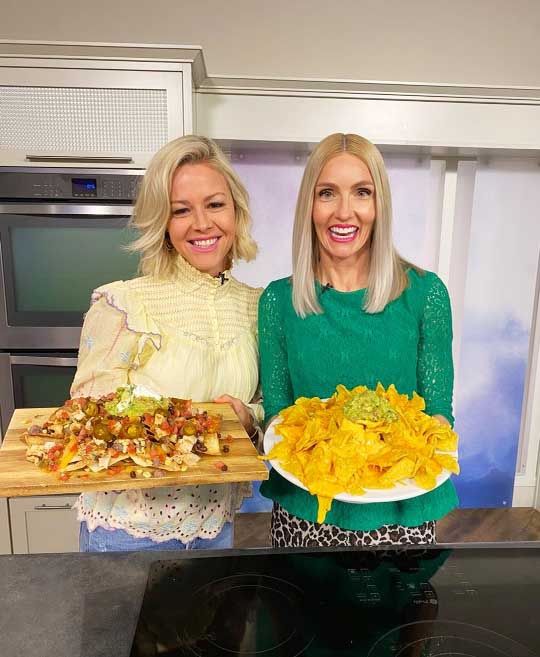
Is there a food that reminds you of your growing up time that ties you there?
I would say baked goods, for sure. And then also when I think of my cute grandma, it was a roast every Sunday. It was part of my religion! Roast, mashed potatoes, gravy, a Jello, and some kind of green vegetable. Every single time I see a roast, I think of my grandma's house.
I also have some core memories of when my kids were tiny, we lived in Virginia, and we would go to apple orchards every fall and pick apples there. I think those will be some of their core memories too.
How can somebody learn more about the things you’re working on?
I would say to visit our website, ThePolicyProject.org, they can get involved or volunteer or anything like that. I’m also active on social media.
Want more news on this topic? Farm Bureau members may subscribe for a free email news service, featuring the farm and rural topics that interest them most!
